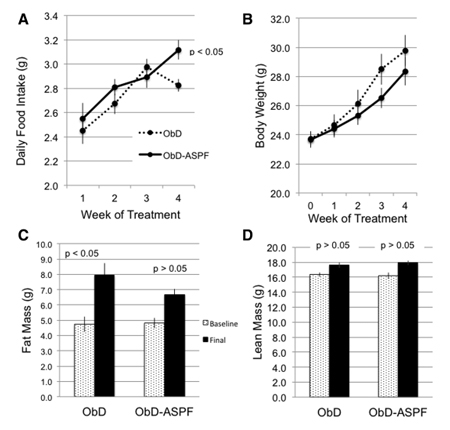
Source: Obesity. 2016 Jan;24(1):87-95.
The decreased weight gain is attributable to decreased absorption of calories and increased fecal energy content, which is possibly linked to decreased bile acid secretion.
Microbiota populations across ten genera were also affected in mice on the ASPF-modified diet, coupled with the increased presence of fermentation byproducts in fecal samples. Five genera in particular - Flavonifractor, Barnesiella, Bacteroides, Oscillibactor, and Alistipes - were significantly increased by the altered diet.
The researchers' call for continued investigation on the effect of ASPF on fat gain and microbiota is part of a wider race to translate microbiome research into therapies. There are 279 open studies on ClinicalTrials.gov and increasing interest from major pharma companies.















.jpg)

.jpg)
.jpg)
.jpg)
.jpg)





.jpg)


.jpg)
.jpg)

.jpg)


.jpg)





.jpg)

.jpg)




